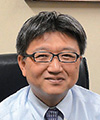 |
|
|
|
|
|
Global Standardization Activities Vol. 17, No. 9, pp. 27–28, Sept. 2019. https://doi.org/10.53829/ntr201909gls Report on the 22nd Global Standards Collaboration (GSC-22) MeetingAbstractThe 22nd meeting of the Global Standards Collaboration (GSC-22) was held March 26–27, 2019, in Montreux, Switzerland. The purpose of the GSC is to enable standards developing organizations (SDOs) to share information, avoid duplication of work, and promote standardization activities. Eighty-five people from 12 SDOs participated in the meeting and discussed two strategic topics: connected citizens & smart sustainable cities, and artificial intelligence. Keywords: Global Standards Collaboration, smart city, artificial intelligence 1. Meeting overviewThe 22nd meeting of the Global Standards Collaboration (GSC-22), held March 26–27, 2019, in Montreux, Switzerland, was attended by 85 delegates from 12 standards developing organizations (SDOs): ARIB (Association of Radio Industries and Businesses) of Japan, ATIS (Alliance for Telecommunications Industry Solutions) of the USA, CCSA (China Communications Standards Association), European Telecommunications Standards Institute (ETSI), IEC (International Electrotechnical Commission), the Institute of Electrical and Electronics Engineers (IEEE) Standards Association, ISO (International Organization for Standardization), ITU (International Telecommunication Union), Telecommunications Industry Association (TIA) of the USA, TSDSI (Telecommunications Standards Development Society, India), TTA (Telecommunications Technology Association) of Korea, and The Telecommunication Technology Committee (TTC) of Japan. Delegates from individual SDOs reported on their latest activities and high-priority issues and discussed two strategic topics: connected citizens & smart sustainable cities, and artificial intelligence (AI). 2. Activity reports by individual SDOsThe 12 SDOs reported on their latest activities and high-priority issues. It was found that a number of SDOs are working on several topics in duplication, such as smart cities, the Internet of Things (IoT), AI, security, and fifth-generation mobile communications (5G). The meeting participants came to a common understanding that it is important for standardization activities to respond to market trends in a timely manner and that SDOs need to collaborate in order to minimize duplicated work. 3. Main themes of GSC-22This meeting singled out two themes for discussion: smart sustainable cities and AI. Representatives of SDOs made presentations and participated in panel discussions on these themes. 3.1 Smart sustainable citiesA latent problem that stands in the way of realizing a smart city is the absence of a common mechanism by which cities exchange data. The SDOs agreed on the need for continued discussions on the development of guidelines and standards that enable seamless data exchange and mutual operation. Prominent among the issues reported by SDOs is a lack of interoperability (due to a silo mentality) among different IoT/smart city platforms. Therefore, the participants found it urgent to standardize the platforms and data APIs (application programming interfaces). 3.2 AIThe participants shared information about the needs of different regions and about sustained activities related to the application of AI and machine learning in the fields of 5G, healthcare, and industrial manufacturing. Some issues addressed at the meeting were not only the technical aspects of AI but also latent problems related to security, privacy, reliability, ethics, social concerns, and regulations. The need for GSC members to cooperate to tackle the ethical and social aspects of information and communication technology systems, services, and technologies was recognized. IEEE reported that it is driving a global project on the ethics of autonomous & intelligent systems, and this project is intended to make designs ethically acceptable. It has formulated the IEEE P7000 series as standards that comprehensively cover ethically conscious AI and autonomous systems. ETSI technical groups are studying various AI applications. For example, the Industry Specification Group is studying Experiential Networked Intelligence, which uses AI for data collection and analysis, Zero Touch Network and Service Management, which applies AI to automation and operation of networks, and Multi-access Edge Computing, which releases network edges and provides network and context information. The Technical Committee is studying Intelligent Transport Systems, which applies AI to autonomous vehicles. The chairman of the Security Working Group of TTC (Japan) gave a presentation on transparency and trustworthiness in AI and machine learning. As AI technology spreads and AI-based decision-making penetrates a broad spectrum of activities, it has been pointed out that the use of improper or biased data can lead to inappropriate decision-making. In addition, deliberate maneuverings of AI engines can lead to decisions favorable solely to a specific group of people. He also pointed out that it is necessary to heed the society-oriented basic principles that the Japanese government has defined for human-centric AI: human-centric, education, privacy, security, fair competition, fairness, accountability, transparency, and innovation. The compilation of guidelines for the use of AI systems and the provision of a reporting function in AI systems are essential parts of the effort to promote AI security standardization. He also identified the needs for the internal assessment of training data, for the examination of output data obtained from standardized training data, for the detection of unbalanced output data, and for technical specifications for the trustworthy framework for the use of AI. 4. Next meetingThe next meeting (23rd meeting) will be hosted by TIA (USA) and held in 2020. |
|









